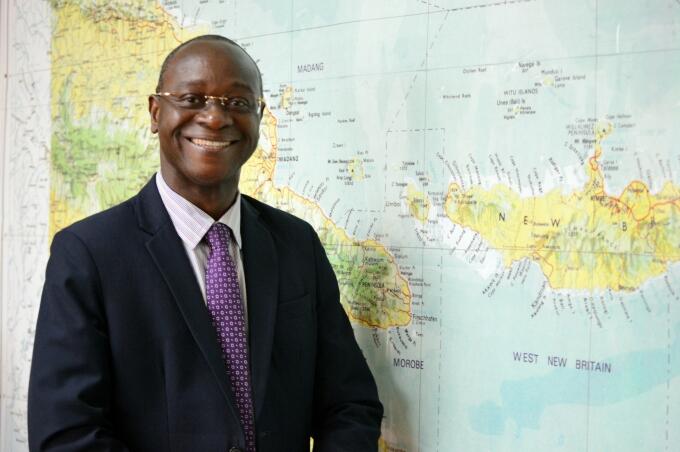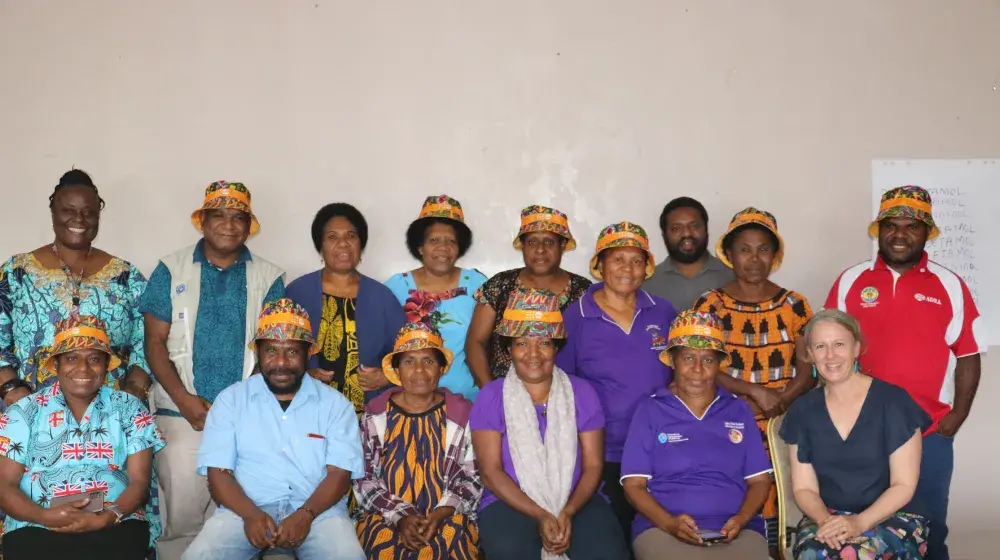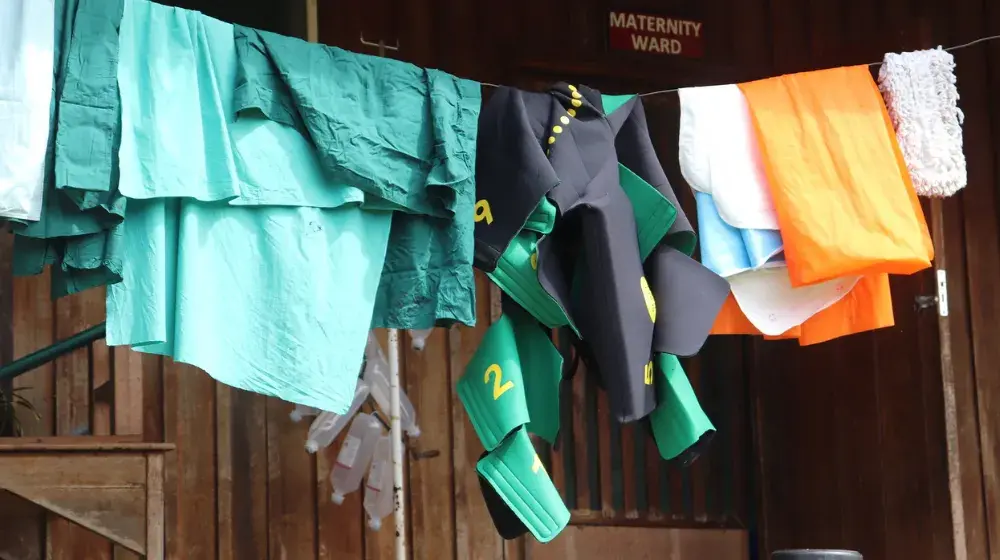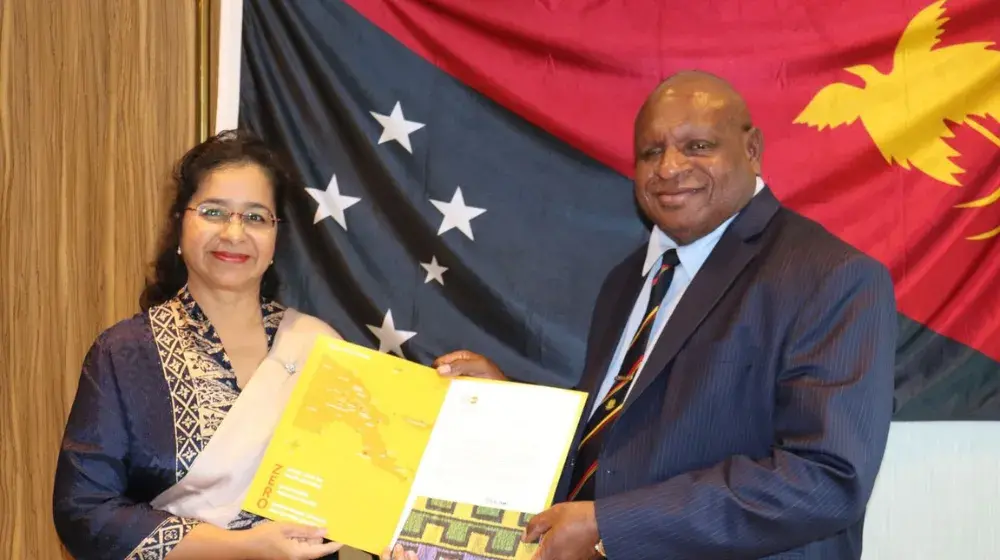Port Moresby, PAPUA NEW GUINEA -- Mr. Koffi Kouame, the United Nations Population Fund (UNFPA) new Representative to Papua New Guinea, was three years old when his mum passed away. That incident heavily influenced his career.
“I lost my mother in my early life. That was a big challenge for me when I was a boy growing up in West Africa as I was missing the love, care and attention that every mother gives to her child,” he recounted.
“That experience was a big part of my motivation to work with women to help ensure they survive whilst giving life.”
Mr. Kouame’s strong sense of justice is accompanied by a broad smile and warm manner.
“I want to ensure that women are supported and protected so they can be at the centre of the family,” he explained.
A UNFPA employee for the past 12 years, Mr. Kouame embraced its mandate to deliver a world where every pregnancy is wanted, every childbirth is safe, and every young person's potential is fulfilled.
He began his three year term for the international development agency in PNG in October 2016, moving from Nigeria to lead a team to develop innovative and relevant approaches for engagement on issues related to population and development, sexual and reproductive health and gender.
“When I read about UNFPA’s mandate in PNG, I realised it had similar health indicators in some of the countries I have worked in, especially in maternal health,” he said.
“In PNG, maternal mortality is high, skilled birth attendants is low, the use of contraceptives by women is low at 24 per cent and there is a high population growth rate. I faced these challenges in Kenya, Nigeria, Sierra Leone, Senegal and my home country – Cote d’Ivoire. So I said ‘okay’ maybe it would be a good opportunity to go there and see if I can help based on my experience working in those countries.”
With over two decades of experience as a development practitioner in population, reproductive health and gender, Mr. Kouame is ready for the challenge.
Mr Kouame’s team had great success in reducing maternal deaths due to pregnancy related bleeding and high blood pressure in selected states in Northern Nigeria through provision of misoprostal and magnesium sulfate .
“We were able to engage the communities, traditional and religious leaders, community health workers and the Nigerian Government to make this program work and achieve a 58 per cent decrease in case fatality rates of obstetric heamorrhage in a 20 month period,” he said.
Mr. Kouame has high hopes for success in maternal health and family planning interventions in PNG too.
“I want to try and reposition UNFPA. Our mandate is really relevant here and we need to make sure it’s at the forefront of the country’s development agenda,” he explained.
“In 2015 the PNG Government adopted the National Population Policy and it highlighted, amongst others, the need to reduce the fertility rate to 3 births per woman, so this perfectly aligns with our mandate.”
Mr. Kouame said a successful strategy to reduce the country’s fertility rate is to provide family planning services.
“We have to make sure that UNFPA becomes a convenor to bring different partners together and leverage existing resources to ensure the government implements a robust family planning programme,” he said.
He is equally passionate about youth, who represent more than half of PNG’s population.
“We are always saying that youth are the future of our countries and the leaders of tomorrow. How do we ensure that they are those leaders of tomorrow?” he said.
Given the opportunity Mr. Kouame believes youth can be a strong force for the country.
“If the government is able to invest in health, education, create jobs or put in place policies that create jobs, you will see that those young people will be healthy, able to go to school, get a job and contribute positively to the economic growth and social development of the country. This will enable the country reap the demographic dividend,” he said.
Mr. Kouame is confident UNFPA’s mandate is achievable in PNG.
“It might not happen today, it may take years, because it’s a long term investment,” he said.
“UNFPA cannot do it alone. The PNG Government cannot do it alone. Partnership is critical. We’ve had a very positive response from the PNG Government and I’m certain we’re on the same page and can enact change.”
With reporting by Alice Plate





